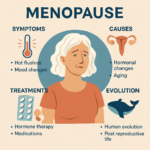
The sleep disorder known as insomnia is referred to as either being unable to fall asleep or having trouble staying asleep. A variety of health problems, such as irritability, memory issues, depression, and the inability to function normally during the day, can result from this inability to get a good night’s sleep. The duration of insomnia, which can last anywhere from a few days to more than a month, depends on its underlying cause. Drug or alcohol abuse, heart disease, mental illnesses, anxiety, pain, hormonal imbalances, or even too much caffeine in the afternoon can all contribute to it. Cognitive therapy and medication are both effective treatments for insomnia, but using sleeping pills can result in addiction and other problems.
Interesting facts about Insomnia:
The average person needs 7 to 8 hours of sleep per night. It may be challenging to function during the day with less than this.
Each night, the body’s immune system needs enough sleep to operate at its peak. Immune system activity can be lowered as a result of insomnia.
Approximately 6% of people are thought to experience insomnia.
Because the brain functions worse when it is tired, insomnia can increase the risk of having a car accident.
Insomniacs frequently miss more work than those who do not experience this sleep disorder.
According to some studies, insomnia may run in families. Teens with insomnia-prone parents are more likely to experience the condition than teens without such parents.
Insomniacs and sleep deprived individuals are more likely to put on weight.
Insomnia is not cured by sleeping pills. They might aid in sleep at first, but as the body adjusts, the pills stop working as well. A person becomes physically dependent on sleeping pills as they start to need more of them to fall asleep.
Some people up their alcohol intake in the hopes that it will make them sleepier. In fact, this exacerbates insomnia and increases the risk of alcoholism.
Along with not sleeping or sleeping poorly, other symptoms of insomnia include waking up too early, being agitated, having trouble concentrating, and feeling sleep deprived.
Some people with insomnia are asked to take part in a sleep study, during which measurements of their blood pressure, oxygen levels in their blood, eye movement, and brain activity are taken while they sleep. Finding a solution to the underlying cause of insomnia can sometimes be helped by doing this.
People who maintain a regular sleep schedule typically experience less insomnia. This entails maintaining a consistent bedtime and wakeup time throughout the week, including on the weekends when many people prefer to sleep in.
Even though it’s uncommon, some people with insomnia can develop a prion disease that prevents them from falling asleep. Death may eventually result from this. The term “fatal familial insomnia” describes this.
Studies have shown that flies who experience insomnia also experience other problems. They put on weight, lose their sense of balance more frequently, and are slower learners than flies without insomnia. Pets can experience insomnia as well.










Your blog has become my sanctuary for intellectual nourishment. Your eloquent writing style and genuine enthusiasm for the subjects you cover have made me a devoted reader. Your blog has ignited a thirst for knowledge within me and has opened my mind to new perspectives. Thank you for being a constant source of enlightenment and inspiration.
Thanks for sharing. I read many of your blog posts, cool, your blog is very good.